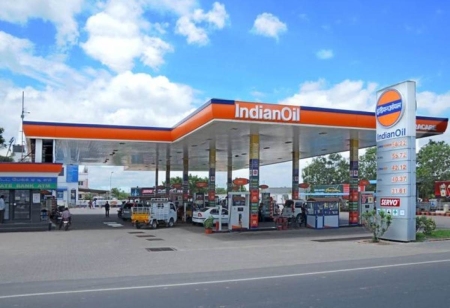
IOC Seeks To Change Various Key Roles

 Most large publicly traded companies in the world are led by a managing director or CEO, with a chairman presiding over the board of directors and the primary responsibility of protecting investors' interests. However, India's largest oil company, Indian Oil Corporation (IOC), is an exception, having never had a managing director or CEO in its 63-year history.
Most large publicly traded companies in the world are led by a managing director or CEO, with a chairman presiding over the board of directors and the primary responsibility of protecting investors' interests. However, India's largest oil company, Indian Oil Corporation (IOC), is an exception, having never had a managing director or CEO in its 63-year history.
IOC, the country's largest oil refiner and retailer of fuels such as gasoline and diesel, has always been led by a chairman who also serves as a managing director or CEO. However, this is likely to change soon, with the Oil Ministry agreeing to redesignate the top job as chairman and managing director, according to sources familiar with the matter.
The company has long sought such a change in order to compete with other large public and private sector organisations. They added that the demand has now been agreed to by the firm's parent administrative ministry and is awaiting approval from the Ministry of Corporate Affairs (MCA).
Shrikant Madhav Vaidya is the current chairman of IOC, and there are seven functional directors in charge of finance, marketing, human resources, pipelines, refining, planning and business development, and R&D.
According to sources, the position of director of research and development (R&D) is likely to be eliminated because it makes no commercial sense to have a director for a division with only 400 employees.
Typically, the chairman is not present for a company's day-to-day operations, which are handled by the CEO or managing director. The chairman is the most senior member of the board of directors or trustees, whereas the CEO is the highest-ranking executive in the operating hierarchy of the organisation.
The chairman manages the company's board members directly, whereas the CEO manages the company's senior executives directly.
Aside from business operations, the chairman may guide high-level policy decisions, and the CEO generally leads from within the business's operational framework, overseeing activities.
The Securities and Exchange Board of India (Sebi) had previously mandated the separation of the roles of chairperson and managing director/chief executive officer (MD/CEO) of a company, but last year it stated that this was no longer compulsory and firms can do so on a "voluntary basis".
In India, the chairman and managing director of most large companies, particularly those run by families, are the same person. Mukesh Ambani is the chairman and CEO of Reliance Industries Ltd, the most valuable company in India. Gautam Adani, the richest Asian, is the chairman and managing director of the Adani Group.
Tatas, on the other hand, has a group chairman and managing directors or CEOs at each of the group's companies.
According to the sources, the IOC's first chairman was a political appointee who was more responsible for managing the board than running the company. However, over time, when professionals were appointed to the position, they were also expected to perform the duties of a managing director.
The role is now being strengthened by redesignating it as chairman and managing director in order to align it with corporate governance standards, they added.